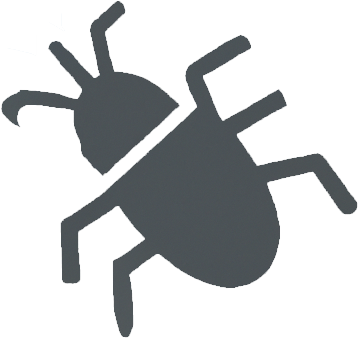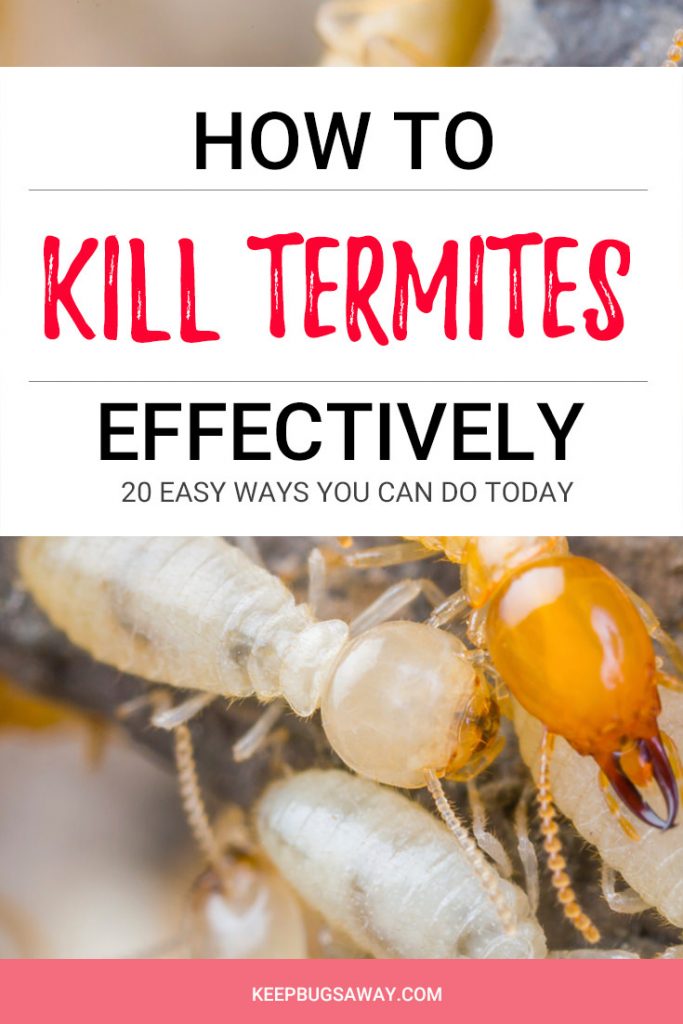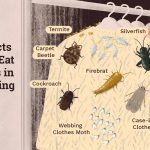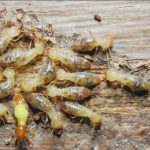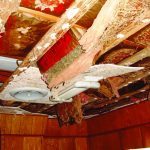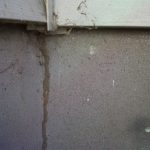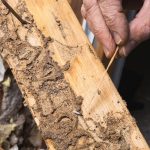Salt is a popular home remedy for various pests, but can it really kill termites? This article will discuss the facts on the effectiveness of salt against termites and how to use it to safely and effectively rid your home of these destructive pests.
What are Termites?
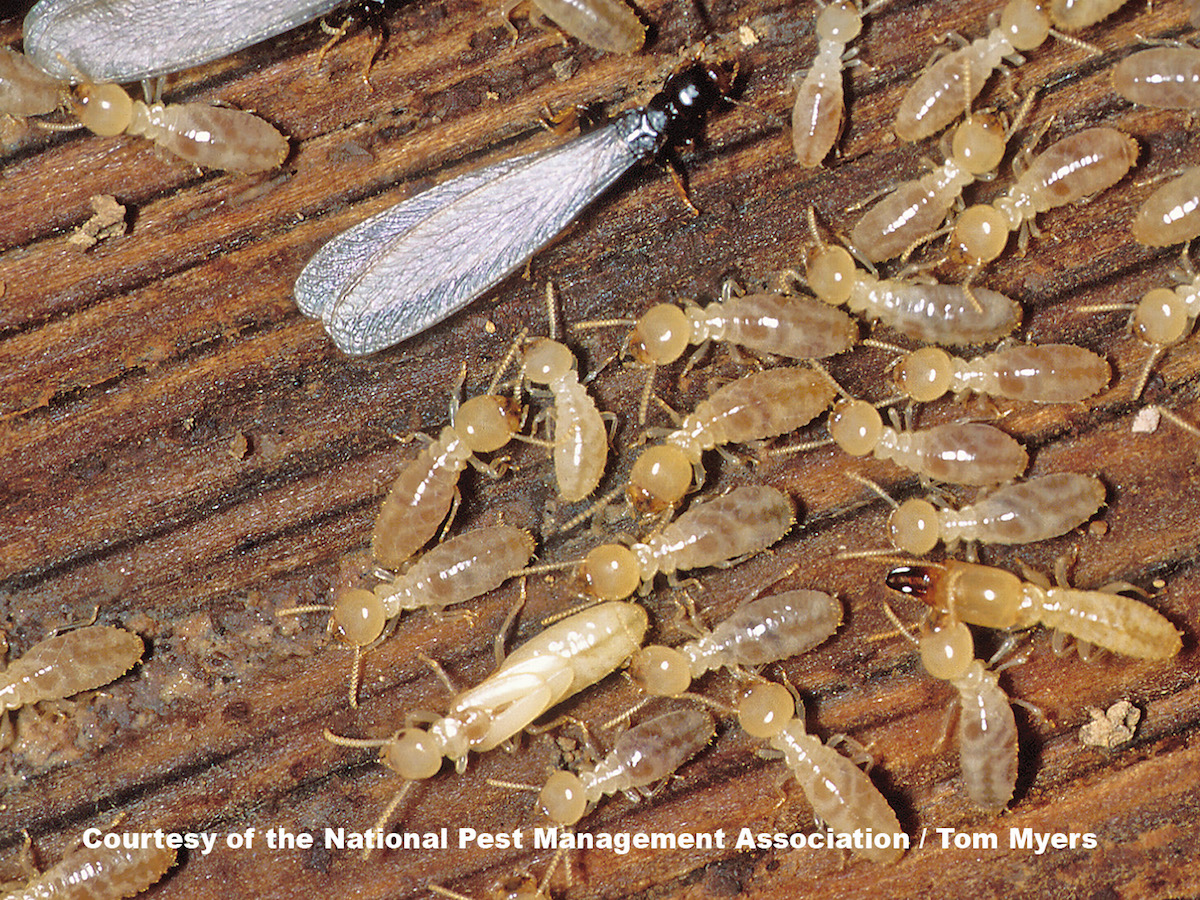
Termites are a type of insect that feed on wood and other cellulose material. They are widely distributed throughout the world and are among the most destructive pests. Termites cause extensive damage to homes, buildings, and other structures, as well as to crops and trees. In the United States alone, termites cause an estimated $5 billion in damage each year.
Termites are social insects and live in colonies of hundreds or even millions of individuals. They are divided into three distinct castes: the workers, soldiers, and reproductive (or swarmer) forms. Each caste has a specific role in the colony, which helps the colony survive and grow.
| Caste | Description |
|---|---|
| Workers | Small, blind, and sterile; feed on wood and other cellulose material. |
| Soldiers | Larger and more heavily armored than workers; defend the colony against predators. |
| Reproductive (Swarmer) | Larger than workers and soldiers; found only in mature colonies; fly away to start new colonies. |
Types of Termites
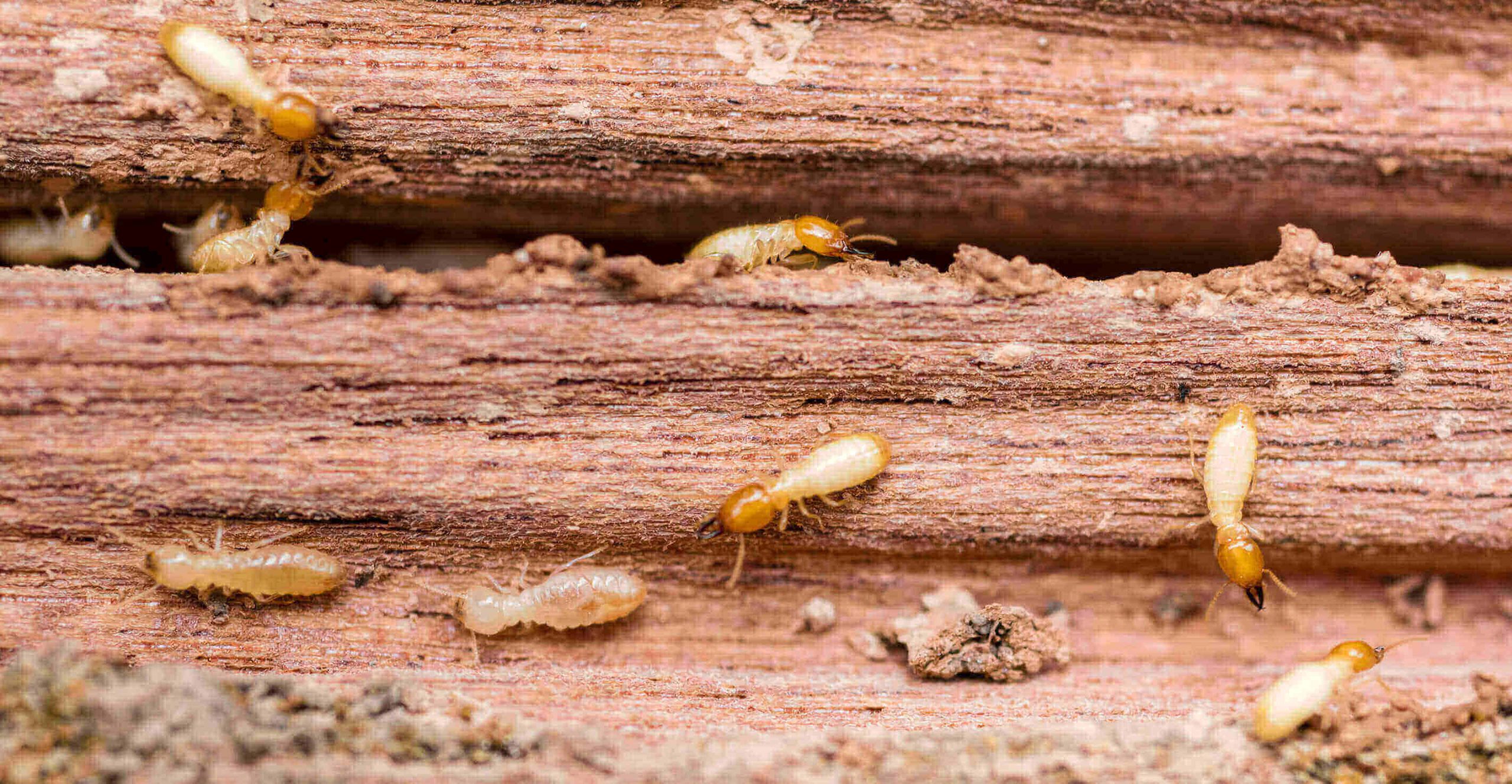
| Type | Description |
|---|---|
| Subterranean Termites | Live in underground colonies and build mud tubes to reach food sources |
| Drywood Termites | Live in dry wood and are found in warmer climates |
| Formosan Termites | Live in underground colonies and swarm during the day |
| Conehead Termites | Live in dry wood and are found in tropical climates |
Termites are divided into four main categories: subterranean, drywood, Formosan, and conehead. Subterranean termites live in underground colonies and build mud tubes to reach food sources, while drywood termites live in dry wood and are found in warmer climates. Formosan termites live in underground colonies and swarm during the day, and conehead termites live in dry wood and are found in tropical climates.
Do Termites Infest Homes?
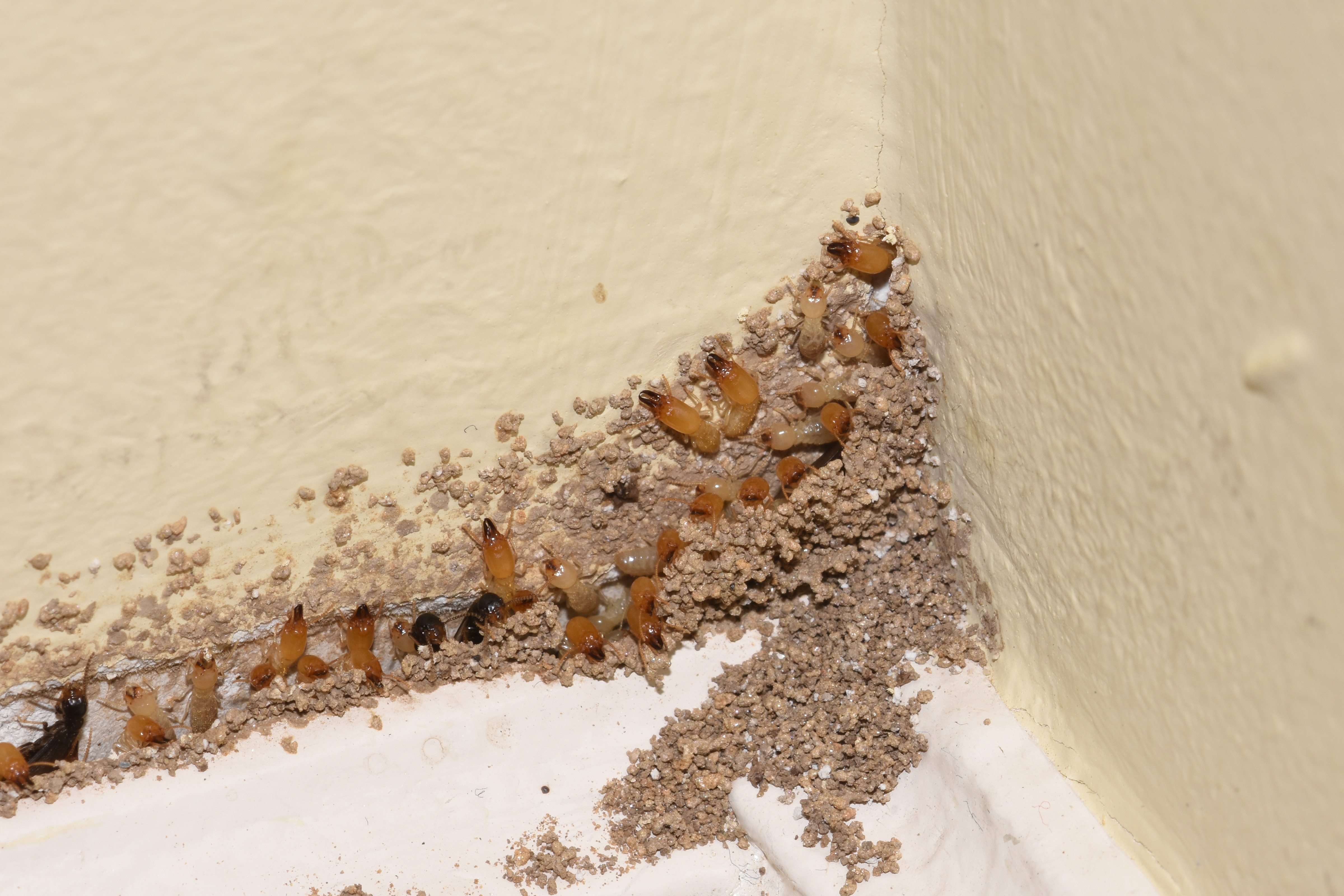
- Termites are a common problem in homes, especially in warm and humid climates.
- They feed on wood, paper, insulation, and other organic materials.
- They can cause significant structural damage to a home if left unchecked.
- Signs of an infestation include swarms of winged termites, piles of discarded wings, and mud tubes along walls or foundations.
- Early detection is key to preventing extensive damage.
- The best way to prevent termite infestations is to keep the home dry, seal cracks, and reduce sources of moisture.
- Using baits, barriers, and other treatments can also help to deter and control an infestation.
Salt does not kill termites directly, but it can be used as part of a larger prevention and control strategy.
How to Identify a Termite Infestation
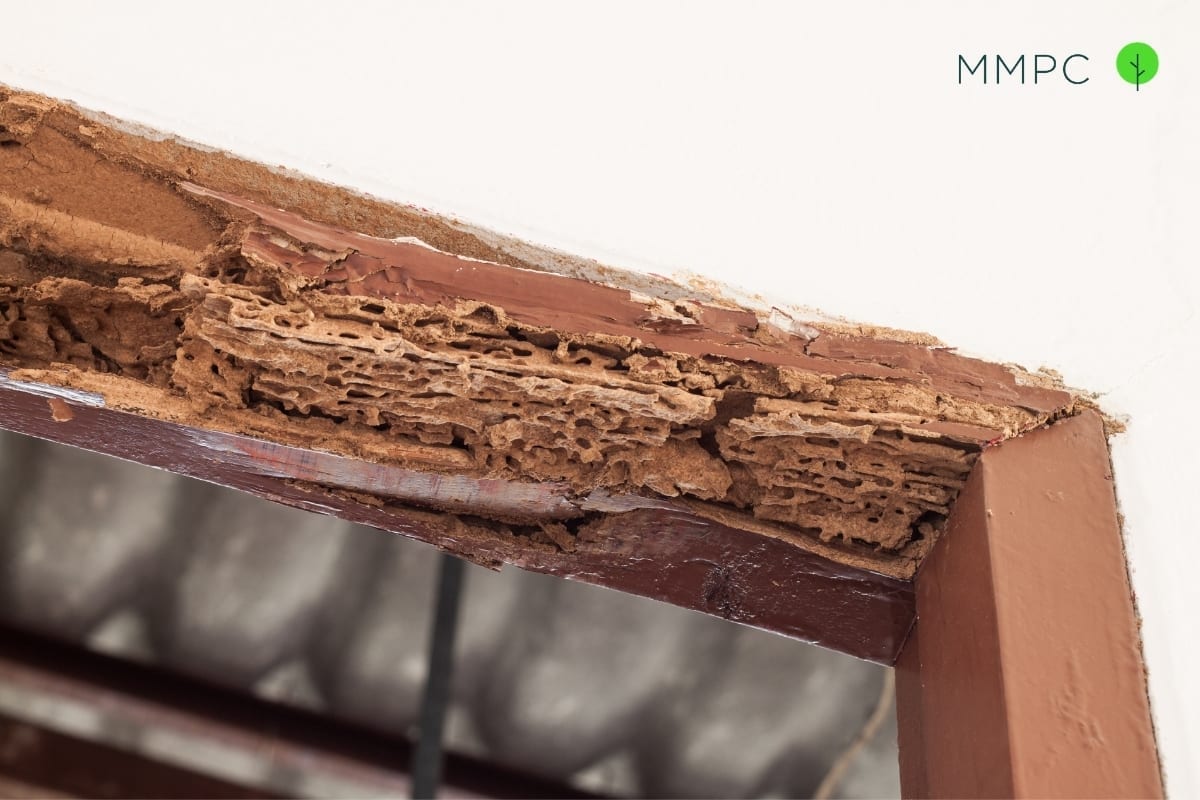
Termites are small insects that feed on wood and other organic material. They are difficult to identify and can cause serious damage to structures and furniture if left untreated. It is important to know how to recognize the signs of an infestation so that you can take steps to get rid of them.
| Signs of an Infestation | Description |
|---|---|
| Mud Tubes | Tubes made of mud and soil, used by termites to travel between their nest and their food sources. |
| Wood Damage | Termites eat wood, so any signs of damage to wood structures, flooring, or furniture can indicate an infestation. |
| Discarded Wings | Termites shed their wings when they are mature and leaving the nest to start a new colony. |
| Noise | Termites make a faint tapping or rustling noise as they move through walls and other structures. |
These are all signs that indicate the presence of termites and should be investigated further. If you find any of these signs, contact a professional pest control service to treat the infestation and prevent further damage.
What are the Signs of a Termite Infestation?
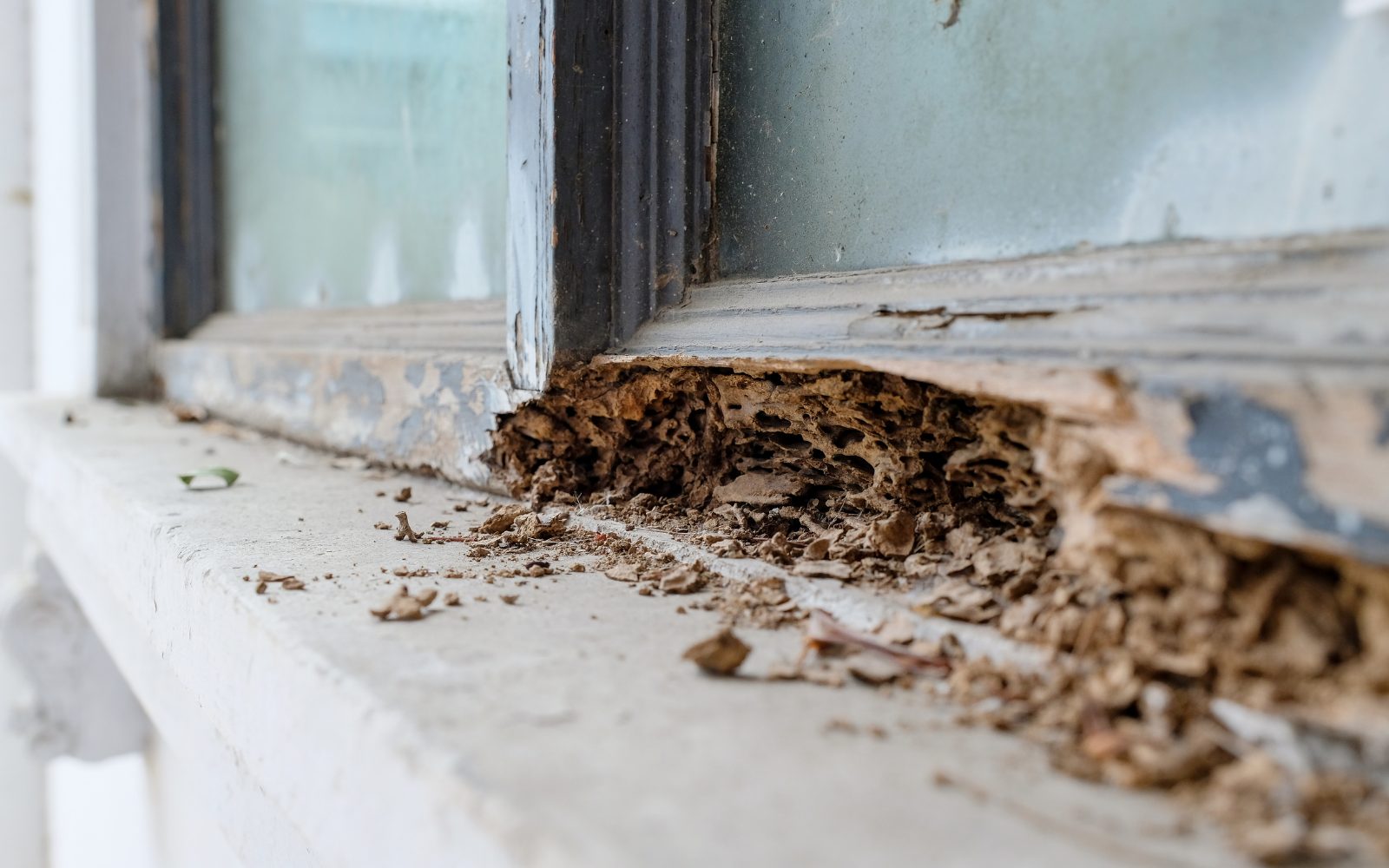
Termites can cause serious structural damage to buildings, but they can be difficult to detect until significant damage has been done. There are several signs of a termite infestation that homeowners should be aware of. These include the presence of mud tubes, signs of swarming, damaged wood, and discarded wings.
Mud tubes are the tell-tale sign of a termite infestation. These are pathways made of mud and soil that termites use to traverse between the soil and the wood of the structure. These tubes are generally 1/4 inch in diameter and can be found on both the interior and exterior walls of the building, as well as on wooden beams, joists, and posts.
Another sign of an infestation is the presence of swarming termites. Termites typically swarm during the spring and fall, and the swarms will usually consist of winged males and females. After mating, the new queens and kings will shed their wings and establish new colonies.
Damaged wood is another indicator of a termite infestation. Termites will feed on the wood of the structure, leaving behind hollowed out galleries. These galleries are usually filled with soil or frass, which is a combination of fecal matter, wood shavings, and termite parts.
Finally, discarded wings are another sign of an infestation. After mating, the new queens and kings will shed their wings and look for new places to establish colonies. If the discarded wings are found near the foundation of the structure, then it is likely that an infestation is present.
These are some of the signs of a termite infestation that homeowners should be aware of. If any of these signs are detected, then it is important to contact a professional pest control company to inspect the structure and determine the best course of action.
What Damage Do Termites Cause?
Termites cause extensive damage to wooden structures, furniture, and other cellulose-based materials. They feed on wood, paper, drywall, insulation, and other organic materials. These pests can also damage books, photographs, and other items made of paper. Termites can also cause damage to wooden structures such as door frames, window frames, eaves, and even the foundation of buildings. This type of damage can be costly and time-consuming to repair. In some cases, the entire structure may need to be replaced. Additionally, termites can also cause damage to electrical wiring and plumbing, which can lead to safety hazards.
Does Salt Kill Termites?
- Salt can be used to kill termites in some cases, but it is not a reliable method for eliminating an infestation.
- Salt does not directly kill termites; it works by dehydrating the insects and preventing them from absorbing water.
- Termites can survive in salty environments, so the amount of salt needed to kill them can be excessive.
- Salt can also cause damage to soil structure and plant roots, so it should only be used with caution.
- Using salt to kill termites is not recommended as the primary method of treatment; it should be used in conjunction with other methods.
- The best way to control a termite infestation is to contact a professional pest control company.
Frequently Asked Questions
How Can Salt Be Used Effectively Against Termites?
Salt can be used to kill termites in a number of ways. One of the most effective methods is to mix salt with water and pour it directly onto the termite infestation. This will cause the termites to dehydrate and eventually die. Another method is to use salt to create a barrier around the infested area. This will prevent the termites from entering and provide a long-term solution to the problem. Finally, salt can be used as a bait to attract the termites and destroy them.
Is salt an effective home remedy for getting rid of termites?
Salt is not an effective home remedy for getting rid of termites, as it does not kill them directly. Salt does not penetrate the wood or the termites’ exoskeleton, so it is unable to kill them. However, salt can be used in combination with other treatments to control termites, such as creating a barrier of salt around the affected area or sprinkling it into the soil around the foundation of the building.
What are the facts about using salt to kill termites?
Salt is often used as a home remedy to kill termites, but there is no scientific evidence that it is effective. Salt does not penetrate the wood or soil where termites live, so it cannot reach them. Even if it did, salt would not be able to kill the entire colony, making it ineffective as a long-term solution. Salt may be toxic to some individual termites, but it is not a reliable solution for eliminating a termite infestation.
Are There Any Risks Associated With Using Salt to Kill Termites?
Salt can be toxic to termites, but it can also be damaging to the environment. It can contaminate water sources and soil, as well as damage plants and other organisms. In some cases, salt can even corrode materials like metal. For this reason, it is important to use caution when using salt to kill termites. It is also important to ensure that the salt is not exposed to any other living organisms, as the salt can be toxic to them as well.
Is Salt an Environmentally-Friendly Way to Get Rid of Termites?
Salt can be used to kill termites, but it is not the most environmentally-friendly solution. It does not penetrate the wood and soil where termites live and can be toxic to other organisms including pets, plants, and beneficial soil microbes. Furthermore, it needs to be reapplied regularly to be effective, which can lead to further environmental harm.
Conclusion
Salt can be used to control and kill termites. It is an effective, economical, and safe method for eliminating termites, but it should be used with caution and in the right way. Salt should be applied directly to the termite infested areas and should not be used as a preventative measure. It is important to take into consideration the type of termites and the area of infestation when using salt as a method of control. Additionally, it is important to keep in mind that salt will not work in all cases and can actually be detrimental to the environment if used in excess.
